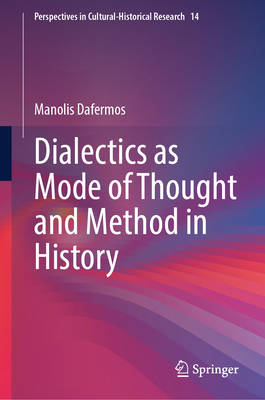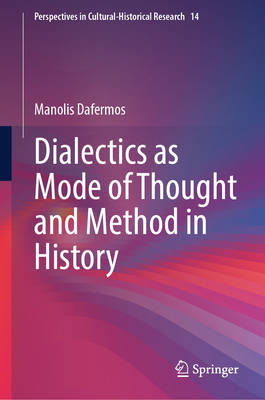
- Afhalen na 1 uur in een winkel met voorraad
- Gratis thuislevering in België vanaf € 30
- Ruim aanbod met 7 miljoen producten
- Afhalen na 1 uur in een winkel met voorraad
- Gratis thuislevering in België vanaf € 30
- Ruim aanbod met 7 miljoen producten
Zoeken
Omschrijving
This book provides a thorough and panoramic exploration of dialectics, presenting it as both a mode of thought and a method of inquiry deeply embedded in the history of human thought. Rather than treating dialectics as a fixed system of abstract principles, the book underscores both its dynamic character and its historical development. Through careful examination of pivotal moments in dialectics across diverse historical periods and intellectual traditions, the book illuminates how dialectics has continually evolved to address the pressing intellectual and social challenges of each era. By tracing the historical trajectory of dialectics from its ancient, spontaneous forms to its modern expressions, the book highlights the significant transformations it has undergone over time. The book also addresses the growing crisis in many fields dominated by reductionist and narrowly empirical approaches, which have proved inadequate for capturing the complexity and dynamism of developmental processes. In response, it points to a resurgence of interest in dialectics as a powerful methodological alternative. A central claim of the book is that the full potential of dialectics remains largely unrealised. Far from being an obsolete relic of the past, dialectics emerges as an essential method, particularly for the study of complex, dynamic systems. Ultimately, the book reconstructs the historical trajectory of dialectics and advocates its vital role in confronting the epistemological and methodological challenges of contemporary inquiry in an ever-changing world.
Specificaties
Betrokkenen
- Auteur(s):
- Uitgeverij:
Inhoud
- Aantal bladzijden:
- 408
- Taal:
- Engels
- Reeks:
- Reeksnummer:
- nr. 14
Eigenschappen
- Productcode (EAN):
- 9783032069191
- Verschijningsdatum:
- 25/11/2025
- Uitvoering:
- Hardcover
- Formaat:
- Genaaid
- Afmetingen:
- 156 mm x 234 mm
- Gewicht:
- 766 g

Alleen bij Standaard Boekhandel
+ 320 punten op je klantenkaart van Standaard Boekhandel
Beoordelingen
We publiceren alleen reviews die voldoen aan de voorwaarden voor reviews. Bekijk onze voorwaarden voor reviews.








